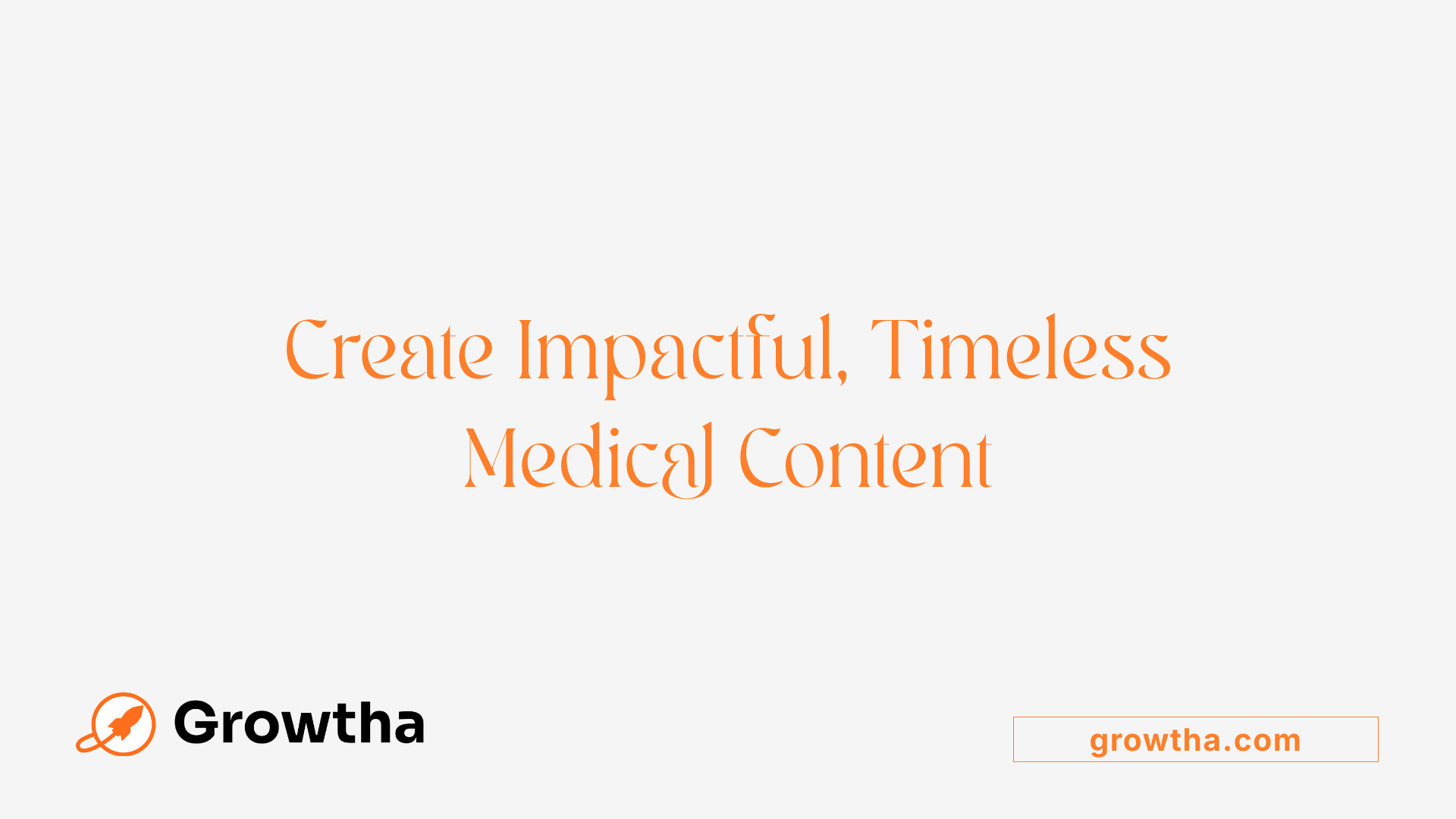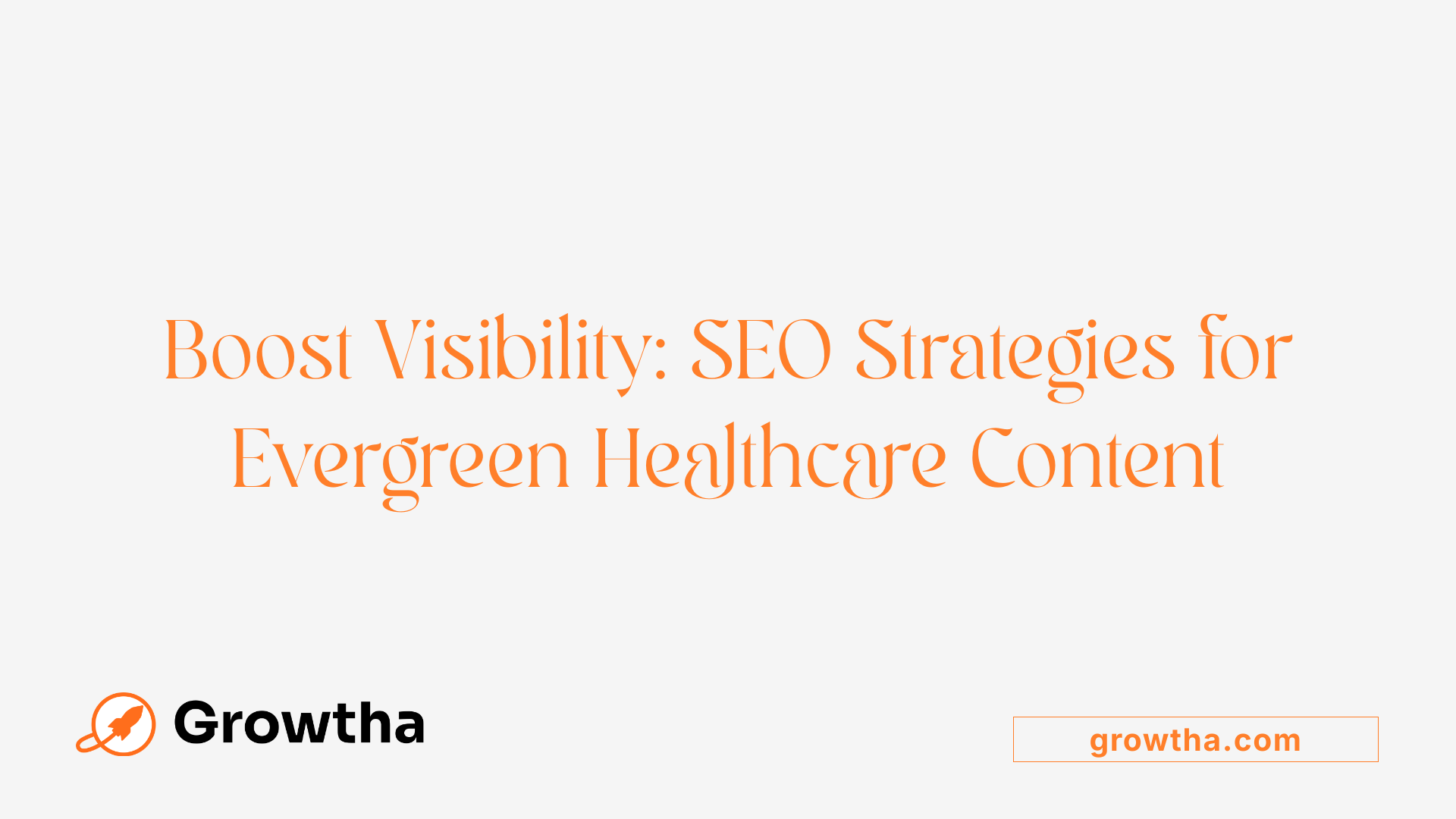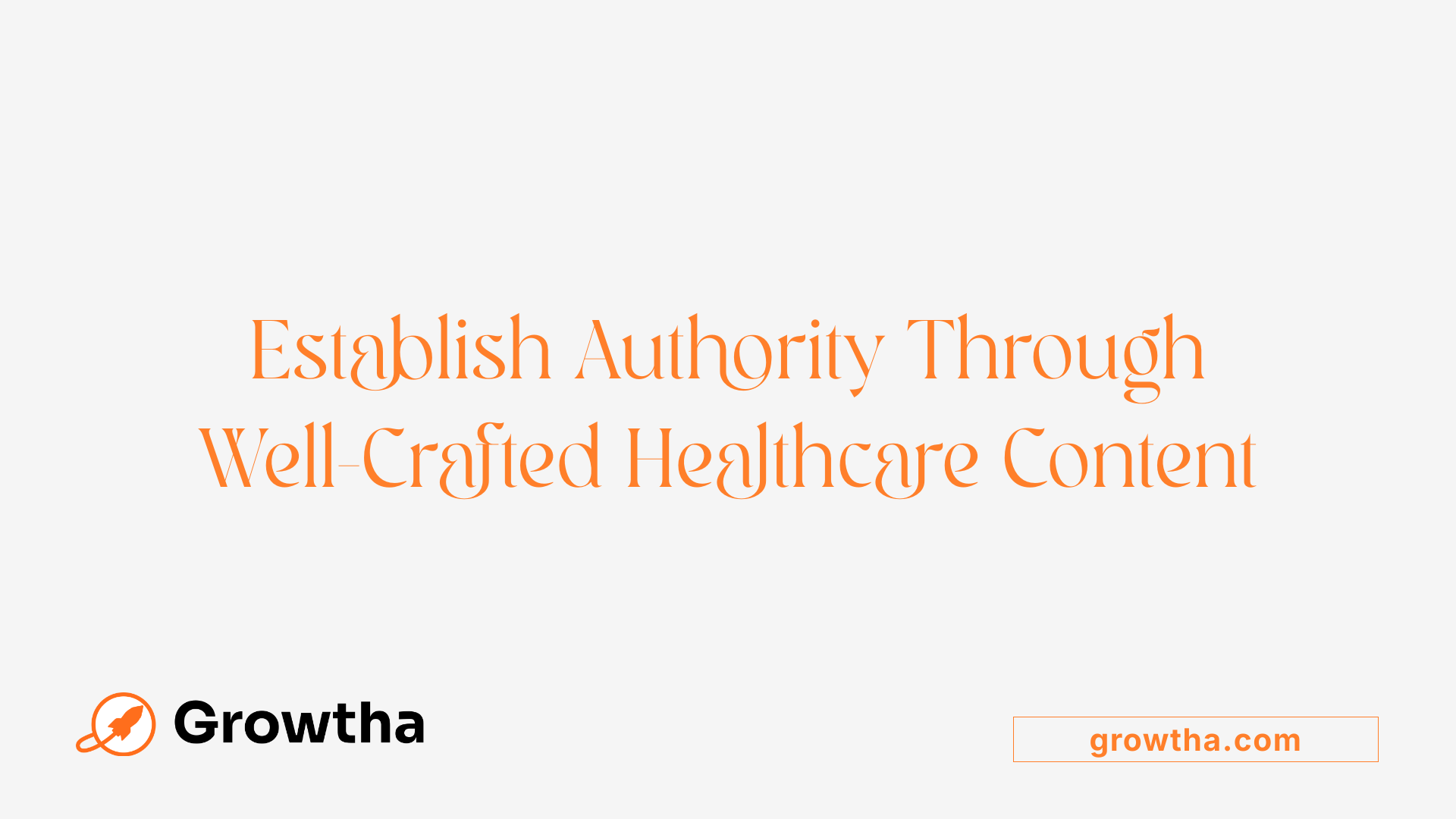In the rapidly evolving landscape of healthcare, providing consistently relevant and accurate information is crucial for building trust, enhancing visibility, and supporting patient engagement. Evergreen content serves as a foundational pillar, ensuring that health organizations can maintain a reliable and authoritative presence online. This article explores what evergreen content entails, its importance in healthcare, strategies for creating durable material, and best practices for preserving its relevance over time.
Evergreen content in healthcare refers to information that remains consistently relevant and provides lasting value for a long period. It includes topics like symptoms of common illnesses, medication side effects, benefits of healthy eating, and ways exercise prevents chronic diseases. These topics are not tied to fleeting trends or seasonal updates but focus on foundational knowledge that people always seek.
Creating evergreen content helps healthcare organizations build trust and establish authority. Patients and visitors come to rely on accurate, in-depth information, increasing website credibility. This type of content also attracts consistent organic traffic, as well-optimized evergreen pieces tend to rank well on search engines over time.
Content like FAQs, educational infographics, and patient stories serve as dependable resources. They address common questions, making healthcare providers more accessible and approachable. Moreover, evergreen content can be periodically refreshed with new data or insights to keep it current, further improving its relevance.
In addition, well-crafted evergreen health content enhances search engine rankings because it aligns with core search intents. It provides long-lasting visibility and helps healthcare sites stay competitive in digital spaces. Overall, durable content serves as a foundational element in a sustainable online strategy, fostering ongoing engagement and supporting effective communication with patients.

Building authority and trust, enhancing patient engagement, and supporting informed decision-making are essential reasons why healthcare providers should focus on creating evergreen content.
Evergreen content refers to material that remains relevant and valuable over extended periods, often years, regardless of changing news trends or seasonal fluctuations. For healthcare organizations, this means producing content that consistently offers accurate, evidence-based information on topics such as medication side effects, symptoms of diseases, benefits of healthy habits, and historical medical advancements.
Creating such timeless content helps establish a healthcare provider’s authority and credibility. When patients find trustworthy, well-researched information online, they are more likely to regard the provider as a reliable source. This fosters ongoing engagement, as patients return to the website for updated knowledge and practical advice.
To support informed decision-making, evergreen content also functions as an educational resource. It empowers individuals by enhancing health literacy, enabling them to understand their conditions and options better. For example, comprehensive FAQs about common concerns or detailed how-to guides on disease prevention can reduce confusion and anxiety.
In the digital age, evergreen content should be thoughtfully researched, often including input from medical professionals, and optimized for search engines through relevant keywords. Continual updates ensure the accuracy of statistics, references, and medical standards, maintaining the content’s relevance.
Effective healthcare marketing relies heavily on this long-lasting content. It helps attract organic traffic, improves search ranking, and reduces repetitive questions during patient consultations, thereby saving time and resources.
Moreover, by repurposing evergreen topics across various platforms—blogs, videos, infographics—the content reaches a broader audience, including diverse communities with different learning preferences. This inclusivity enhances health education and promotes equitable access to vital information.
In essence, prioritizing evergreen content fosters a strong online presence, shapes public perception, and ultimately benefits patient health outcomes by providing continuous, reliable, and accessible information.
Providing educational and credible health-related content that remains relevant over time is essential for healthcare websites because it builds trust with patients, encourages ongoing engagement, and supports informed decision-making. Timeless, evidence-based information helps improve health literacy, empowering individuals to better understand and manage their health conditions, which can lead to healthier behaviors and better outcomes. Additionally, continuously updated content ensures relevance in a rapidly evolving medical landscape, maintaining the website's authority and accuracy. Accessible and understandable information can reduce healthcare disparities by reaching diverse communities and promoting equitable access to vital health resources. Ultimately, such content plays a vital role in preventing disease, reducing healthcare costs, and influencing public health policies, making it a cornerstone of effective health communication.
For healthcare providers, creating content that remains relevant over time can significantly boost their online presence and foster trust with patients. Effective evergreen healthcare content includes comprehensive guides on common health conditions such as heart disease symptoms or managing diabetes. These guides should offer clear, accurate, and easy-to-understand information that patients can refer to long-term.
Preventive health tips are another valuable category. Providing advice on nutrition, exercise, and lifestyle changes can motivate patients to adopt healthier habits over the years. Topics like the benefits of superfoods, vitamins, and regular physical activity effectively serve as ongoing resource materials.
FAQs and resource materials form the backbone of accessible healthcare content. Answering common questions about medications, side effects, or treatment options helps educate patients and reduces repeated basic queries during consultations. Developing multimedia content—such as educational videos, infographics, and interactive quizzes—can make complex topics more engaging and easier to grasp.
Supporting content should include downloadable resources like eBooks and whitepapers, which delve deeper into medical topics, backed by research and expert insights. Regular updates to these resources are essential to maintain accuracy and relevance. Reusing existing content by repurposing articles into social media posts or short videos can reach different audiences and reinforce key messages.
Using tools like keyword research and analytics from platforms such as Parse.ly’s Evergreen Report helps identify which topics continually attract interest. Focusing on keywords with steady search volumes, like “preventive health tips” or “symptoms of common diseases,” ensures that the content will remain valuable over the years.
Incorporating these strategies—well-researched, visually appealing, and regularly refreshed—helps healthcare providers establish themselves as trusted authorities, improve search rankings, and serve as reliable resources for ongoing health education.

Healthcare providers aiming to build enduring, authoritative online resources should start by focusing on timeless topics. These include symptom guides, disease prevention tips, and information about the benefits of certain foods or medications. Such subjects are consistently relevant, attracting ongoing interest from patients seeking reliable information.
Keyword research plays a crucial role in identifying terms that remain popular over time. Keywords with steady search volumes like 'symptom checker' or 'benefits of superfoods' are ideal. Using tools such as Google Trends or BrightEdge Instant helps analyze keyword performance, ensuring the content targets phrases that sustain search interest.
Once core topics and keywords are identified, content creation should emphasize clarity, simplicity, and authority. High-quality, well-researched information, fact-checked by medical experts, enhances credibility. Incorporating varied formats—such as detailed how-to guides, infographics, and comprehensive FAQs—not only improves user engagement but also makes information more accessible.
To maintain relevance, regular updates are essential. This involves refreshing statistics, updating references, and adding new insights as medical knowledge evolves. Linking related topics internally and to reputable external sources helps establish authority and improves SEO rankings.
In addition to technical aspects, effective governance ensures content remains accurate and up-to-date. Using centralized CMS (Content Management System) platforms simplifies management and updates. Promoting evergreen content through healthcare blogs, newsletters, and social media channels can attract sustained traffic.
Overall, a strategic combination of timeless topics, targeted keyword use, dynamic content formats, and ongoing maintenance enables healthcare providers to create medical content that remains valuable for years, supporting both patient education and site authority.

Evergreen healthcare content plays a vital role in boosting a website’s SEO and attracting consistent organic traffic. This type of content offers information that remains relevant over long periods, aligning with the ongoing search queries of users seeking health-related knowledge. By focusing on topics such as symptoms, treatment options, or health advice that do not change frequently, healthcare organizations can create resources that answer common questions and establish authority.
To maximize SEO benefits, it is essential to perform thorough keyword research. Identifying high-volume, stable keywords related to core health topics allows content creators to target terms like "medication side effects" or "benefits of superfoods." Integrating these keywords naturally into comprehensive guides, FAQs, and patient stories helps the content rank higher on search engine results pages.
Consistent updates and optimizations are crucial. Refreshing statistics, fixing broken links, and aligning with current search trends ensure that the content remains competitive. Additionally, creating a structured internal linking strategy helps search engines understand the website’s architecture, distributes page authority, and guides users to related relevant content, further improving rankings.
Incorporating accessible and well-researched information positions the site as a trustworthy source. Regularly adding new resources and optimizing existing ones supports sustained growth in organic visibility, attracting steady traffic over time. Overall, well-crafted evergreen content, combined with strategic SEO practices, creates a long-lasting online presence that benefits both healthcare providers and their audiences.

Maintaining evergreen healthcare content requires a strategic approach to keep information accurate, engaging, and aligned with current medical standards. Regular content audits are essential; reviewing existing pieces to update outdated statistics, references, or recommendations ensures reliability and trustworthiness.
Transforming content into various formats increases its reach and usability. For example, converting a detailed article into an engaging infographic, a short video, or a practical checklist can attract diverse audiences and cater to different learning preferences.
Collaborating with medical professionals and industry experts can refresh content with new insights, strengthening authority and credibility. Incorporating recent research findings or updates on treatments can demonstrate expertise and provide added value.
SEO optimization plays a critical role in maintaining visibility. Using targeted keywords, updating meta descriptions, and ensuring fast-loading, mobile-friendly pages improve discoverability on search engines.
Aligning evergreen content with current services, seasonal themes, or health trends enhances its relevance. For example, an article on managing stress can be linked to Mental Health Awareness Month or other relevant observances.
Automation tools for content management can help schedule regular reviews and updates, reducing manual effort. This lifecycle management ensures your websites remain authoritative and trustworthy.
In summary, effective repurposing includes updating content regularly, diversifying formats, collaborating with experts, optimizing for SEO, and integrating content lifecycle strategies. This approach strengthens your healthcare brand’s authority, provides consistent value to your audience, and improves long-term search engine rankings.

Creating well-structured, long-lasting healthcare content, commonly known as evergreen content, plays a crucial role in establishing a website’s authority and relevance. Such content consistently provides valuable information on topics like symptoms of common diseases, medication side effects, and historical breakthroughs in medicine. Because it remains applicable over time, evergreen content attracts ongoing traffic and earns backlinks, which are vital for improving search engine rankings.
High-quality healthcare evergreen articles showcase expertise and trustworthiness, reassuring visitors about the credibility of your site. Examples include patient stories, educational infographics, and comprehensive FAQs that answer frequent patient questions. These formats not only enhance user engagement but also demonstrate authority in the field.
To maximize impact, healthcare providers should incorporate internal linking strategies, connecting related articles and guiding visitors through a well-structured content network. Diversifying content formats—such as videos, blog posts, and interactive tools—further enriches the user experience and builds website credibility.
Maintaining the accuracy and relevance of evergreen content through regular updates is essential. This involves refreshing statistics, verifying information with medical professionals, and removing outdated references. Such diligence signals reliability to search engines, helping maintain a strong online presence.
Ultimately, durable healthcare content increases website visibility, builds long-term trust, and positions the site as a reputable source of health information. This comprehensive approach strengthens authority and relevance, attracting both search engines and patients seeking dependable guidance.
Investing in evergreen healthcare content is essential for maintaining a strong digital presence, fostering patient trust, and establishing authority. By focusing on timeless, well-researched topics, utilizing strategic SEO practices, and regularly updating content, healthcare organizations can reap long-term benefits. Evergreen content not only drives ongoing traffic and improves search rankings but also enhances the credibility of healthcare providers, leading to increased patient engagement and better health outcomes. As the medical landscape continues to evolve, maintaining a commitment to high-quality, relevant, and durable online resources will ensure lasting success in healthcare digital marketing.